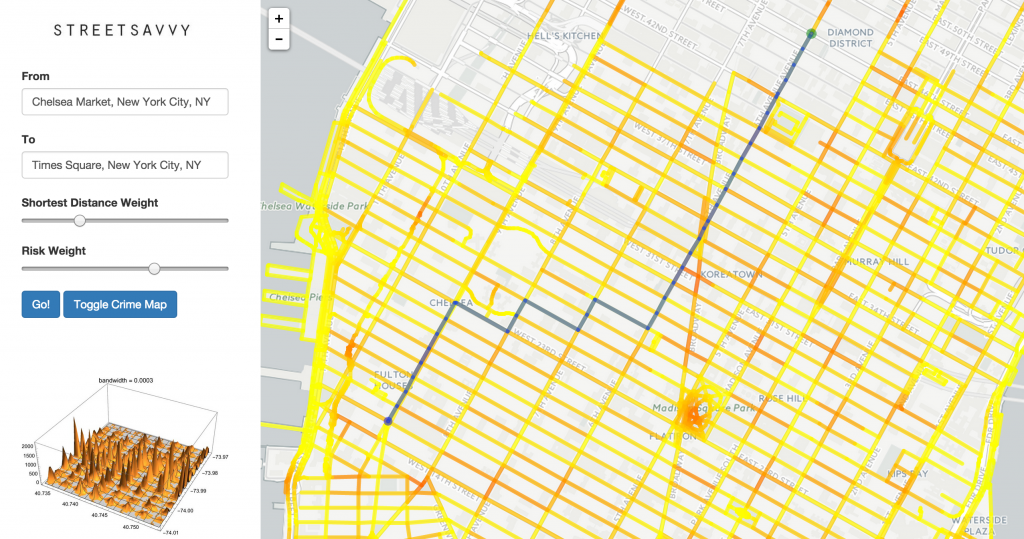A smartphone can tell you the shortest drive, the shortest walk, or the best bike paths to get from A to B. To this list computer scientists are adding tools such as finding the most beautiful route using photos from Flickr.
At the Data Science Hackathon hosted by Cornell Tech at Google HQ on March 6–8, 2015, we created a tool called StreetSavvy for finding a “safe” walking route in NYC. We drew some tools from this academic paper on algorithms for balancing shortest-path and avoiding crime hotspots.
We used crime data from NYC Open Data. Each crime event is a spike at a certain location. To “smooth” these out, we used a kernel density estimation, with a characteristic spatial scale of around 40 meters. We chose that distance because of we wanted it to be slightly smaller than the length of a Manhattan block (80 meters), but not too small.

The visualizations, powered by CartoDB, won the prize for best visualization. All the source code is on GitHub. Congratulations to fellow team members from Cornell and Columbia: Gabriela Rojas, Marie Rose Muir, Patrick Boueri and Shayan Masood.
A challenge for a tool like this is that it could exacerbate divisions among neighborhoods and among races. Similar apps like the crowdsourced SketchFactor and Microsoft’s pedestrian route patent drew criticism. See, for example, NPR’s article This App Was Made For Walking — But Is It Racist?.
In that sense, this 24-hour project highlights both the promise and peril of Big Data: we harnessed lots of data and created a slick tool in just hours, but the result presents important and delicate social issues.
Can technology augment street smarts? I am doubtful. Maybe it could using Jane Jacobs’ insight: streets with open businesses—and hence people and eyes on the street—are safer. That suggests favoring routes with businesses that are open at that time of day. That sounds more palatable than avoiding supposed crime hotspots.